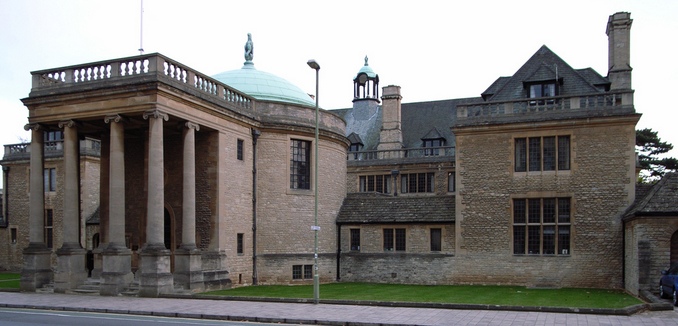The first two Israeli students to receive the prestigious Rhodes Scholarship to study at Oxford University will be announced next week, following a years-long campaign to let Israelis join the list of eligible nationalities.
The Israeli students will participate in the program along with the first Rhodes Scholars from Syria, Jordan, the Palestinian Authority, and Lebanon, The Jewish Chronicle reported. The program, established by the Rhodes Trust in 1902, was originally open to students from English-speaking British colonies, the United States, and Germany. Since then, it has expanded to include candidates from West Africa, China, the United Arab Emirates, and Malaysia, among others.
The campaign to include Israel was led by Gary Pickholz, chairman of the Weird Science Lab at Oxford University.
“We are ecstatic at the decision to include Israel in the most prestigious scholarship awarded,” Pickholz said. “We are also delighted that Israel will become a regular annual candidate country. This should significantly assist the UK’s academic research at the most elite level.”
Pickholz’s efforts were reportedly met with resistance from proponents of the Boycott, Divestment, and Sanctions campaign, which aims to demonize and isolate Israel until it accedes to a number of unilateral Palestinian demands.
“This was a Herculean effort by many, and represents a truly significant accomplishment in pushing back against academic BDS,” an individual who was involved in the campaign to include Israel, and preferred to remain unnamed, told The Jewish Chronicle.
A report released by the American Council of Trustees and Alumni (ACTA) earlier this month described how the BDS campaign is used to stifle academic freedom in universities. It cited calls from some 400 academics and university administrations at more than 170 American campuses for “more productive ways of addressing the Israeli-Palestinian conflict” to replace the “aggressive, antidemocratic tactics galvanizing deep inter-group suspicions” that has marked the BDS campaign’s activities.
Michael B. Poliakoff, the president of ACTA, explained that his organization’s research “suggests that the tactics employed by the BDS movement clearly conflict with the principles of academic freedom that enable students and educators alike to engage in open discourse, inquiry, and learning. Higher education leaders and trustees should take this opportunity to reinforce their commitment to free expression and institutional neutrality.”
Other recent studies have also raised concerns over the threat that the BDS campaign poses to the free exchange of ideas on college campuses. Last September, a study by the Israel On Campus Coalition showed how the BDS campaign was changing tactics and focusing more on intimidation as a means of spreading its message. Two months later, a statistical study by the AMCHA Initiative, a watchdog group, found a strong correlation between anti-Israel activity at a university and on-campus anti-Semitism.
[Photo: Steve Cadman / Flickr ]




